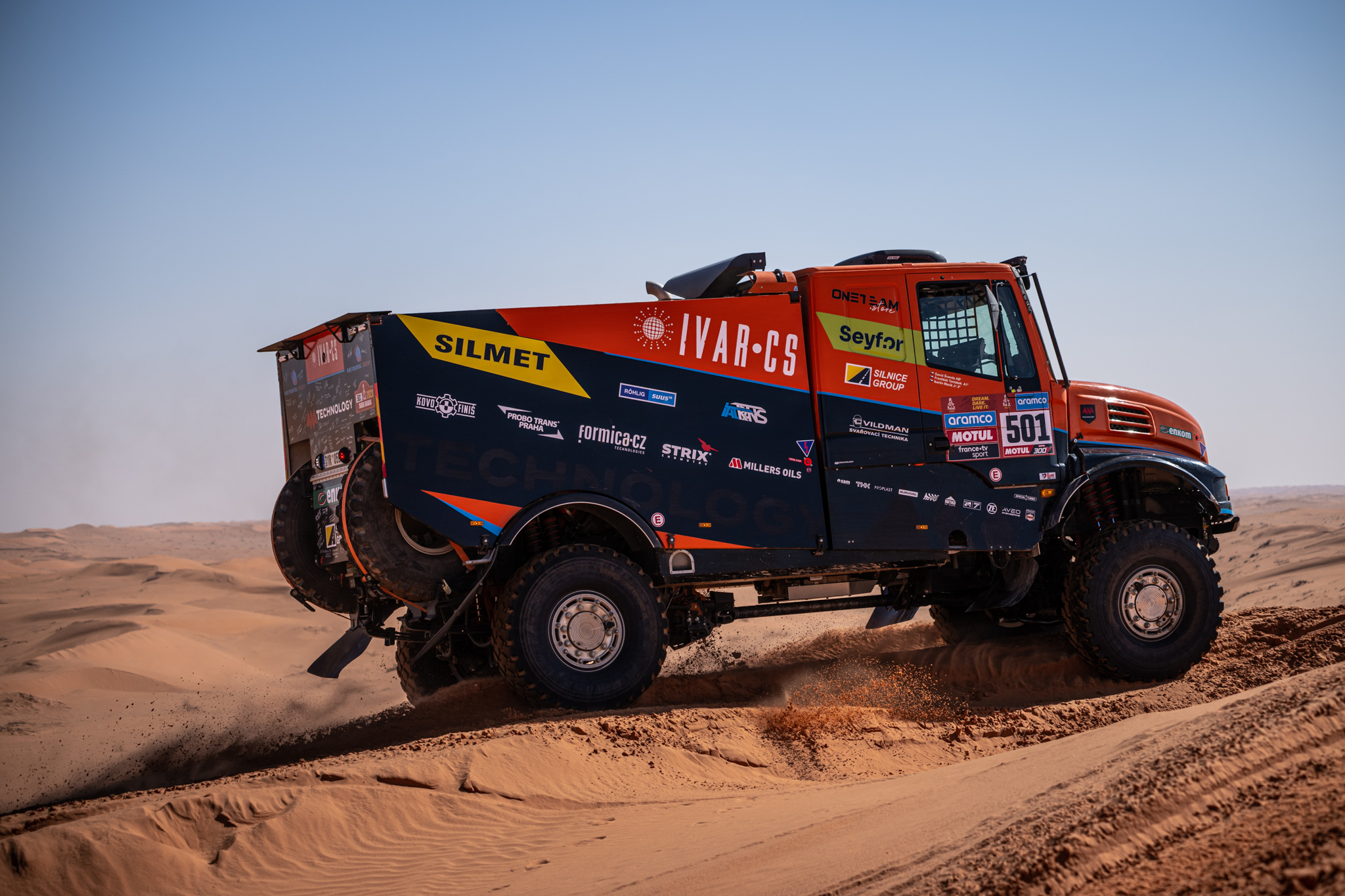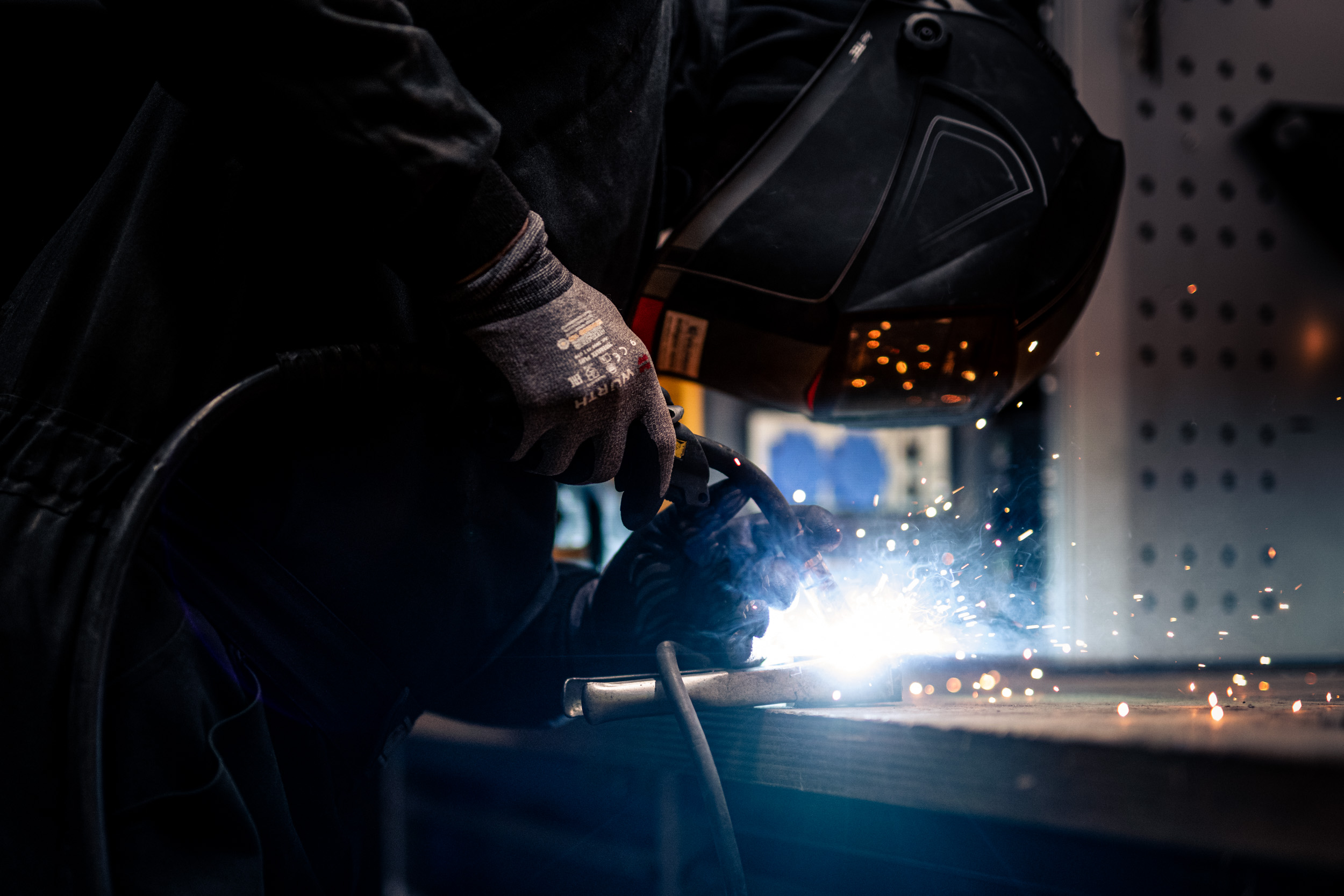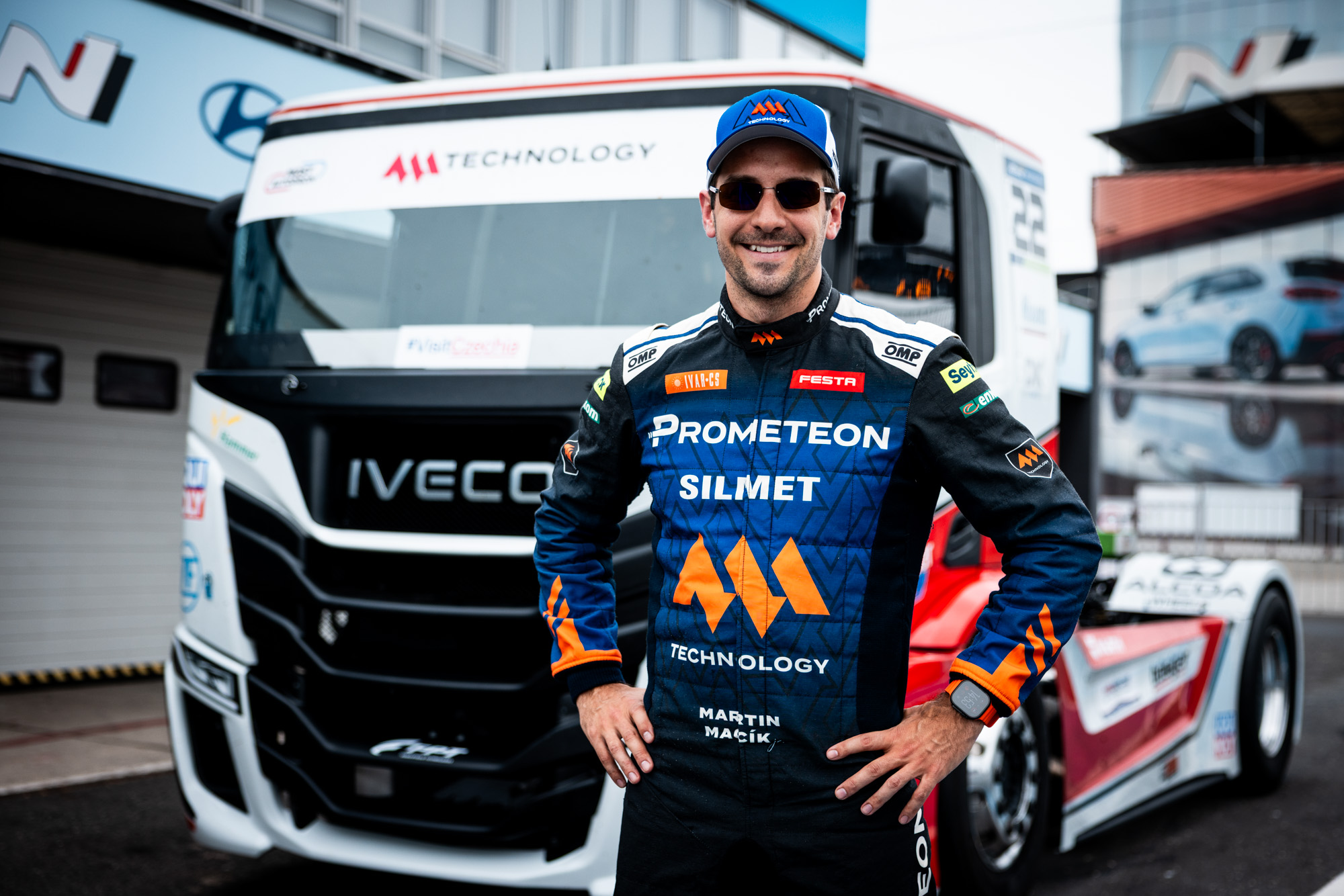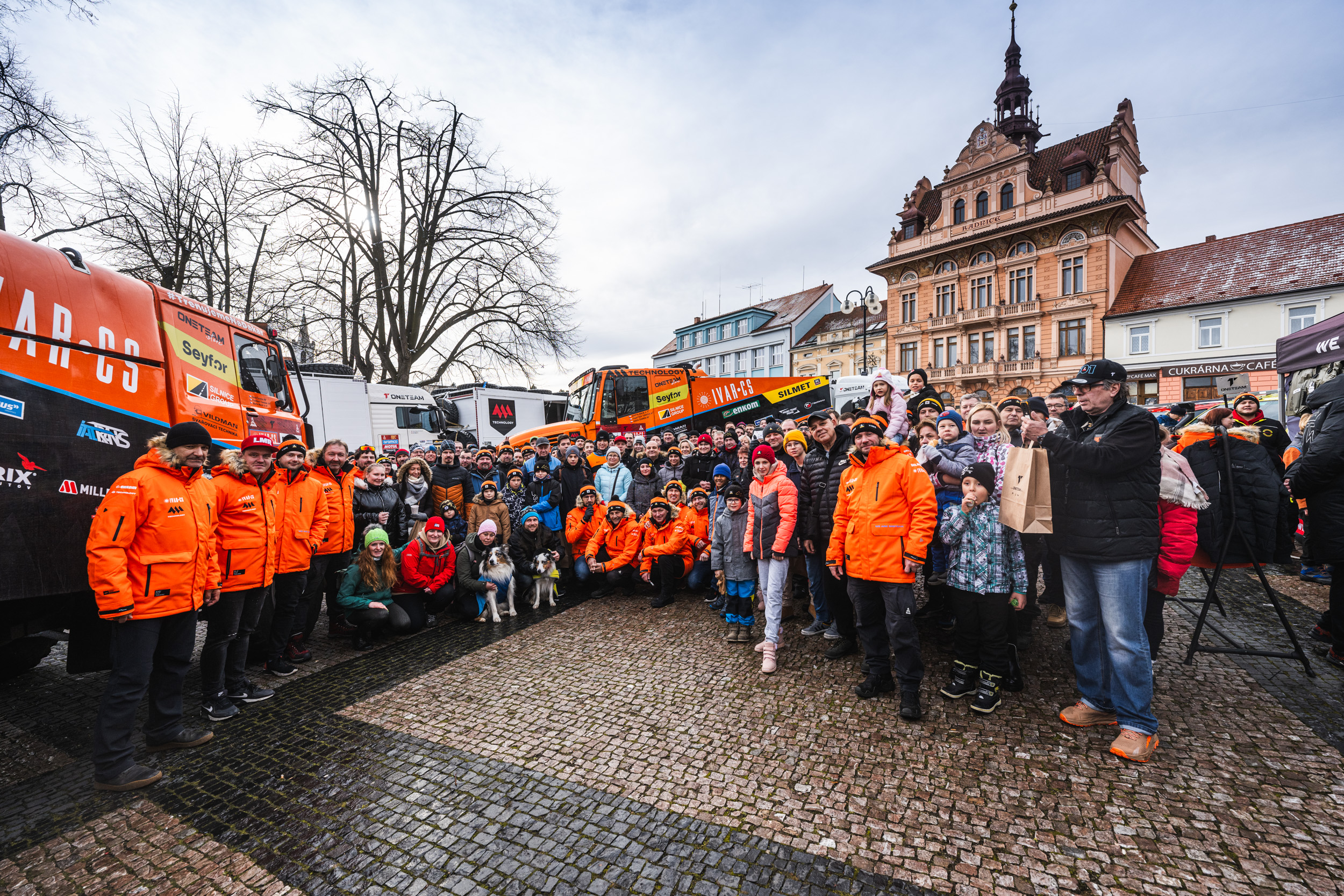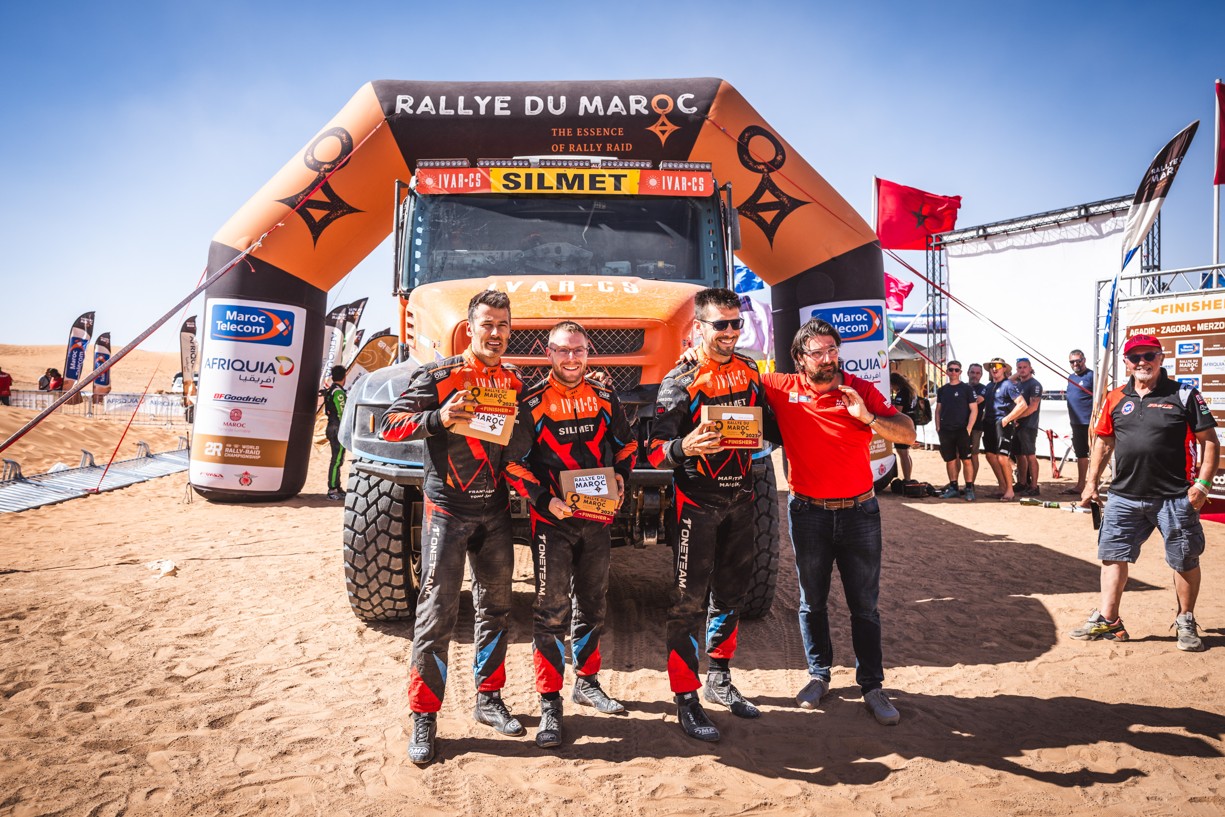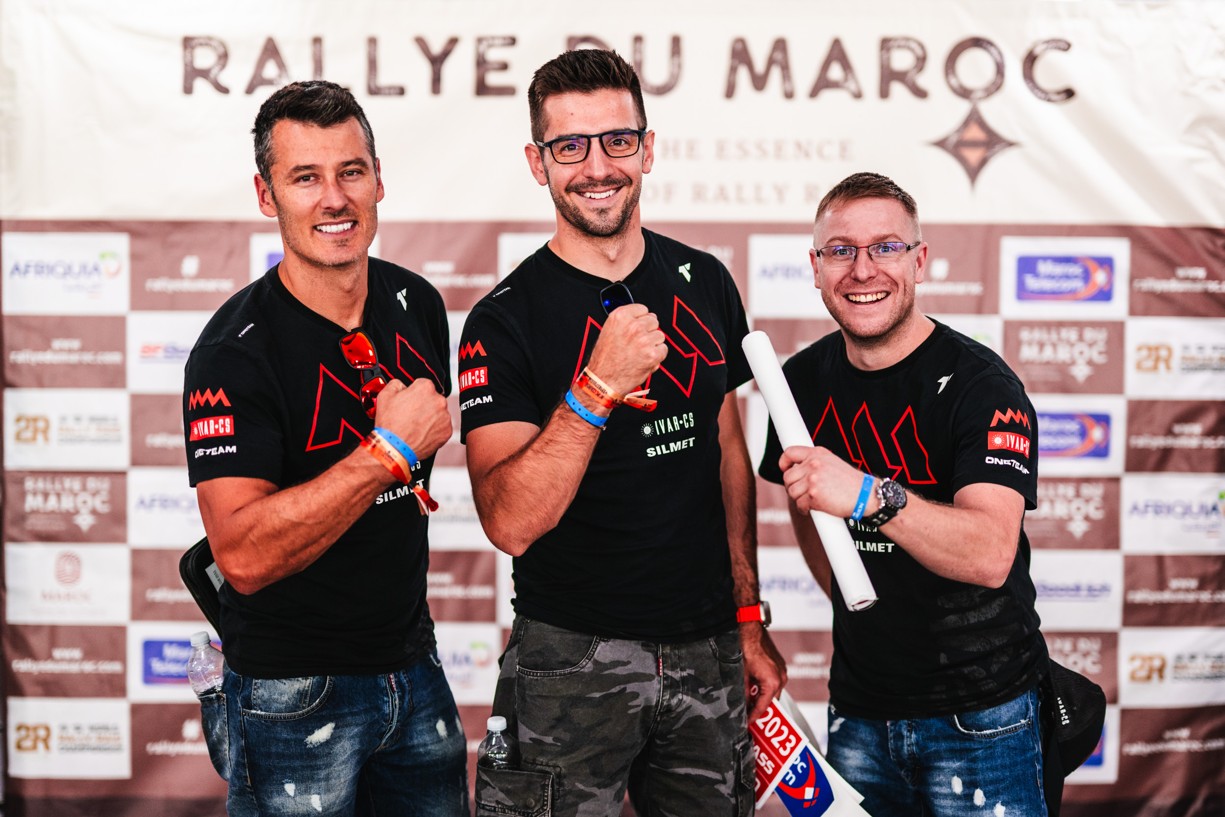The racers of the MM Technology team, pilot Martin Macik, navigator Frantisek Tomasek and mechanic David Svanda, conquered the sand dunes of the 6th stage of the Dakar and came in a great 3rd place. Just under 3 minutes behind the winner. In the overall rating, the crew from Sedlcany is at 4th place. And at the finish line, they again had a lot to tell. The orange Cenda truck was able to deal with all the pitfalls of the track at a great pace, managed to save itself from a dangerous skid on a slippery wet rock and finally met some camels. After completing the challenging stage, all the crews still had a long way to go to rainy Riyadh. The total number of kilometers traveled today reaches almost 900. And the program for the following days is also changing.
The dunes gradually grew
The speed trial in today’s 6th stage was shortened by approximately 100 km due to the development of weather conditions. The competitors thus covered 357 racing kilometers on Friday. Dunes and sand were on the agenda. The crew of the MM Technology team got off to a smooth start and drove fast on the sandy desert tracks at the beginning of the stage. “Then came the smaller dunes, which gradually got bigger and bigger. And then we found ourselves in such big hills, that we had to drive really fast to climb them. And we also got through a lot of rutted dunes where you can’t see beyond the horizon. When you send a truck over those, there is a hole or each wheel goes to a different side,” explained Martin Macik.
Camels on the track
Gradually, the crew worked their way towards the highest dunes in the last part of the stage at a fast pace. “It was on the edge there. We couldn’t climb some of the dunes, so we drove around them from different directions and tried to find the best way to cross them. The sand was already very rutted. And suddenly we met a herd of camels. We had fun today,” describes the experienced moments navigator Frantisek Tomasek, who gave a brilliant performance today. “Navigation was very difficult. Frantisek was on a roll, found two really hard waypoints beautifully and thus helped us overtake some opponents. We searched and circled only once, otherwise the navigation was excellent,” Martin Macik praised his navigator.
In the final stage, after 350 km, the competitors from Sedlcany rejoiced that the dunes were ending. But the last shot of adrenaline came when they reached a rocky path on a bedrock. “There was a wet left-hand corner, we slipped, and we got into a skid. We almost fell off the cliff. Hopefully everyone made it through there safely,” describes David Svanda.
Change of plans, next stage will be “a marathon”
At the finish line, the competitors learned news about the plans for the coming days. Due to the weather, which made it impossible to build a bivouac in Al Duwadimi, the following stages 7 and 8 will be switched, shortened and declared as marathon stages. According to the organizers, the rally should be sufficiently demanding. In the 7th stage, which will be held on 7th January (from Riyadh to Al Duwadimi), the special part will measure 333 kilometers.
A zone will be set up at the finish line where the competitors can carry out the most necessary repairs with the help of their support vehicles. But the time for repairs will be limited – a maximum of two hours. “This is a big change. We still have a lot of things to prepare today. Mainly the truck, spare parts and everything we could need. Two hours for service between stages is not much, it usually takes longer. We will be packing, we’ll prepare tents, sleeping bags, clothes,” plans mechanic David Svanda.
The subsequent 8th stage, which will be held on Sunday 8th January, will lead back to Riyadh, with the loop originally planned in the program for stage 7 shortened by 128 kilometers. So the race will be 345 kilometers and then the Dakar riders will go to the bivouac in Riyadh. There will be a rest day on Monday, 9th January. Then the Dakar should continue according to the original plan.

